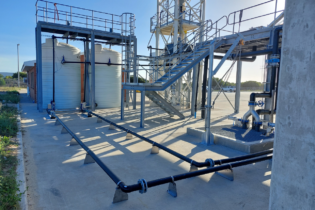Municipalities have a direct responsibility to water service provision and water security. But they are often overwhelmed by aging or inadequate infrastructure, financial constraints as well as a lack of technical expertise. They need focused, structured support from the private sector, civil society as well as associations and academic institutions.
This support must address the pressing issues of water security and wastewater management. Too often, we assume a one-size-fits-all approach, failing to recognise the diverse landscapes and resource dependencies across our country. We need to move beyond generic support and instead focus on solutions that are specifically designed to meet the unique needs of each local government. It is important to understand that municipalities have differing local conditions, such as the availability of natural water sources, existing infrastructure, climate variability, and socioeconomic factors. Therefore, a blanket approach will never suffice. For example, when considering alternative water resources for better water security, municipalities in the Northern Cape would focus on groundwater while municipalities along South Africa’s coastline would look to desalination. Furthermore, structured support in wastewater management can help municipalities upgrade and maintain their wastewater treatment infrastructure, ultimately contributing to better water quality and a more sustainable environment.Legal mandate
Providing municipalities with support is not a mere “nice-to-have”. There are a range of legislative frameworks:- The Constitution of South Africa (Section 154) places a responsibility on both national and provincial governments to assist municipalities in strengthening their capacity to manage their own affairs and exercise their powers. This provision underpins the cooperative governance approach, ensuring municipalities receive the necessary support and resources to meet their developmental goals.
- The National Water Act (Act No. 36 of 1998) focuses on sustainable and equitable water resource management. It encourages municipalities to explore innovative water use and conservation methods.
- The Municipal Systems Act (Act No. 32 of 2000) outlines the responsibilities of municipalities to ensure effective service delivery. It promotes integrated development planning, which includes water resource planning, aligning municipal strategies with national and provincial support initiatives.
Governance
Furthermore, there is a need to address the broader governance and enabling environment within municipalities. Effective governance, capacity building, and resource allocation are all crucial elements in empowering local governments to fulfil their sustainability roles. Municipalities need support with the creating local development, spatial and sector plans (that include water services development plans).
Harrison Pienaar, Research Group Leader: Smart Water Use, CSIR







